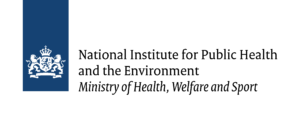For the first time, the costs of alcohol consumption in the Netherlands have been mapped. The National Institute for Public Health and the Environment published an extended cost-benefit analysis, showing that alcohol consumption costs the Dutch society yearly 2,3 to 2,9 billion euro.
If all costs and all benefits of alcohol are expressed in monetary terms, the net costs were 2,3 to 2,9 billion euro in 2013. Examples of the costs of alcohol are less productivity at work, costs of police and justice and traffic accidents. Alcohol also has benefits, for instance excise tax income for government. The feeling of wellbeing that consumers may experience from drinking alcohol has also been expressed in monetary terms. The monetary benefits of alcohol have been subtracted from the costs of alcohol to arrive at the final estimate of net costs for society.
Regulatory policies aimed at reducing the amount of alcohol consumed, such as a further increase of excise taxes, a reduction of the number of sales venues and a total mediaban, will result in savings for society at large. Some examples of such positive effects are less mortality and improvement of quality of life because some diseases associated with alcohol are prevented, more productivity, less traffic accidents and less efforts to be taken by police and justice.
In the long run, over a period of 50 years, an increase in excise taxes of 50% will result in societal benefits of 14 to 20 billion euro, an increase of excise taxes of 200% will result in societal benefits of 37 to 47 billion euro. The societal benefits of closure of 10% of sales venues are estimated at 3 to 5 billion euro after 50 years, and at 8 to 12 billion euro when 25% of sales venues would be closed. The societal benefits of a mediaban would amount to 7 billion euro after 50 years, but there is more uncertainty about this result.
This appears from a study led by RIVM. The three regulatory policies have been modelled using the Social Cost-Benefit Analysis (SCBA) approach. By expressing the net welfare effect of government policies and interventions, SCBAs can support policy makers in taking decisions on implementation of future policies.
Click here to download the report.

